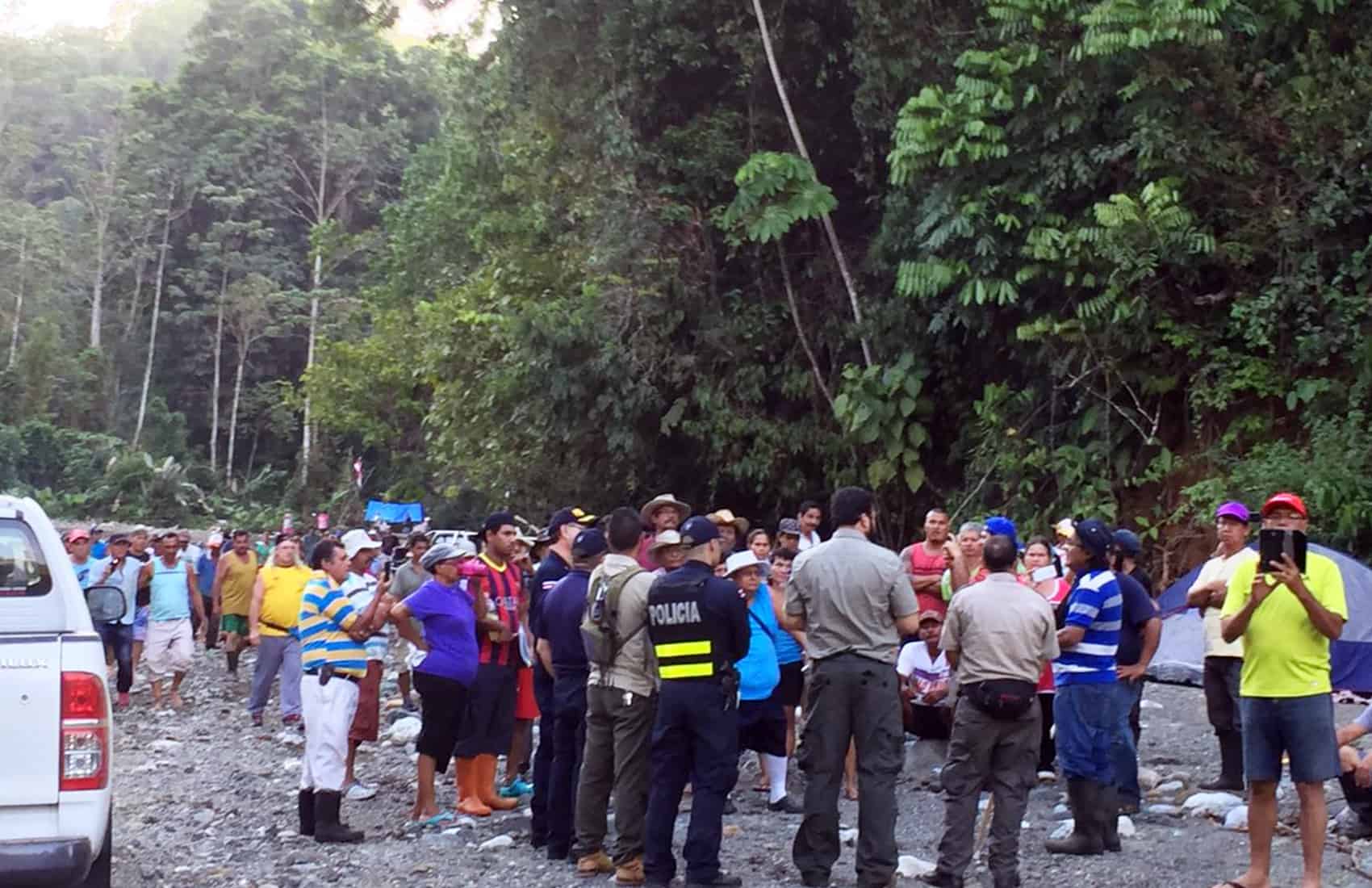A group of more than 100 people who identified themselves as gold miners set up a camp just outside Corcovado National Park on Sunday. They are demanding that the government compensate them for the expropriation of thier lands during the creation of the park, four decades ago.
The group arrived at around 10 a.m. in several trucks and buses and set up in tents outside the world-renowned park, located in the Osa Peninsula, in Costa Rica’s southern Pacific region.
Carlos Madriz, director of the Osa Conservation Area, told The Tico Times on Monday that the group includes men, women, children and senior citizens. They claim to have been struggling with severe economic problems since the creation of the national park in 1975, he said.
They expect the government to include them in a plan, currently under discussion at the Legislative Assembly, to compensate a group of gold miners who never received financial support following their exclusion from the now protected area.
The Public Security Ministry confirmed through its press office on Monday that they sent 50 National Police officers to help park rangers and staffers secure the area.
“The group remains calm. As of Monday noon we have no reports of any incidents or attempts to enter the national park,” the ministry responded to a Tico Times query.
Compensation plan
Environment Minister Édgar Gutiérrez said in a written response that demonstrators have been warned that gold mining inside the park is illegal and that anyone found trying to extract gold or poaching will be sent to court.
Gutiérrez said ministry officials told the group that the compensation plan is already at the Legislative Assembly and that the bill will not be expanded to include any more people.
“Every time we’ve opened a window of opportunity to compensate a group [of gold miners], others start showing up in our doors claiming they were gold miners too… but many of them were not even born when the national park was created,” the minister noted.
Gutiérrez said that the Ministry will not allow any of the demonstrators to enter park lands, and that the Prosecutor’s Office has been instructed to take action against anyone who breaks the law.
Court-ordered protection
The arrival of this new group of gold miners occured just a few days after the Constitutional Chamber of the Supreme Court, or Sala IV, ordered the government to outline a plan to protect Corcovado from ongoing illegal actions from gold miners, poachers and loggers.
The ruling responded to a group claim filed by the Costa Rican Federation for Environmental Conservation (FECON), the Environment Ministry’s Workers’ Union, and the NGO Preserve Planet.
FECON President Mauricio Álvarez said in a news release on Monday that in addition to this new group of gold miners, Corcovado is being threatened by poachers, loggers “and the permanent presence of 400 gold miners who are destroying the park with dynamite and heavy machinery.”
Environmental groups for decades have denounced the government’s lack of action against gold miners who destroy vegetation and forests, and dump large amounts of sediments into the rivers and therefore to the sea.
The claim filed before Sala IV cites numerous documented examples from scientific research and on-the-ground inspections that concluded that gold miners’ actions are severely reducing populations of several species of animals and plants.
One of those reports said park rangers and experts found that gold miners in a section of the park used dynamite to remove some 10 square kilometers (3.8 square miles) of material, equivalent to some 2,000 waste trucks full.
“This is equivalent to medium-scale open-pit mining,” the document states.
President Luis Guillermo Solís and Minister Gutiérrez officially inaugurated infrastructure works for $2.4 million in Corcovado National Park last Friday. Solís said the investment should help increase tourism in the park and in the Osa Peninsula.
Corcovado is home to 50 percent of the country’s species and harbors 3 percent of the world’s biodiversity. National Geographic famously referred to Corcovado as “the most biologically intense place on Earth.”
Other publications and rankings have also placed Corcovado among the best national parks in the world.
Recommended: Costa Rican court orders effective protection for Corcovado National Park






